
 Flash News
Flash News
Gunfire in Durres, a 30-year-old man is injured
Accident on Arbri Street, car goes off the road, two injured
Arrests of "Bankers Petrolium", Prosecution provides details: Exported and sold 532 billion lek of oil, caused millions of euros in damage to the state
Ndahet nga jeta tragjikisht në moshën 28-vjeçare ylli i Liverpool, Diogo Jota
Posta e mëngjesit/ Me 2 rreshta: Çfarë pati rëndësi dje në Shqipëri
Albanians perceive economic inequality much higher than official indicators
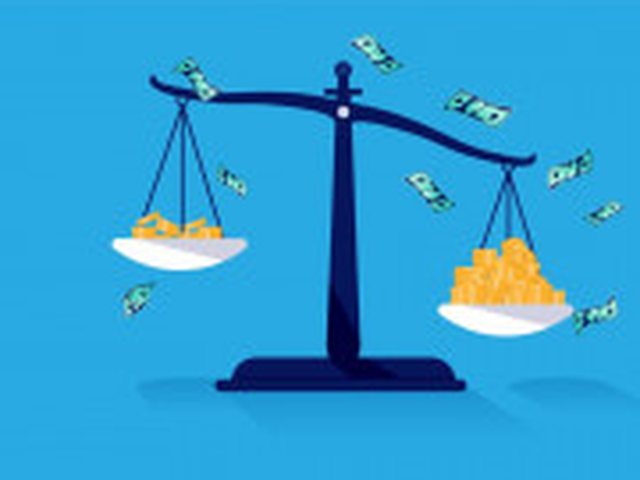
From the perspective of citizens, economic inequality in the Region and in Albania is higher than official measurements, the World Bank highlighted in its regular spring economic report for the Balkan Region.
In Albania, for example, the GINI coefficient that measures the inequality indicator is 36.0 (where 0 means total equality, where everyone has the same income, up to 100 maximum inequality, where a single person owns everything), but 82.2% of citizens perceive high inequality which is increasing.
In Kosovo, the GINI coefficient is 29.0, while 54.8% of the population perceives high inequality.
In Montenegro, the objective measure is 34.4, but the perception of inequality reaches 49.6%. In North Macedonia, the measure is 33.6, while the perception reaches 82.9%. In Serbia, the GINI index is 33.1, while 67% of the population feels that inequality has increased. In Bosnia and Herzegovina, the GINI index is 28.8, while the perception is 64.4%.
The Bank is concerned that perceptions of inequality not only remain high, but are believed to be worsening. Around two-thirds of the population in the region believe that the gap between rich and poor has widened over the past four years. In Albania and North Macedonia, over 80% of respondents share this belief.
Factors such as growing insecurity in the labor market, the spread of illegal forms of employment, polarization of the labor market, and intergenerational inequalities, where young people face greater challenges, are contributing to the increase in inequality.
With the exception of North Macedonia, a relatively high percentage of respondents in the countries of the region are willing to contribute financially to narrowing this gap.
Economic inequalities are perceived to be increasing in the Western Balkan countries (WB6), even though poverty levels are decreasing. There is a widespread perception among citizens that the gap between the rich and the poor is too wide and needs to be reduced.
Citizens' perception of inequality in the Western Balkans contrasts with the GINI coefficient which is generally 40, a level that, according to the World Bank, is not classified as high inequality by international standards.
The countries of the region, and especially Albania, are dominated by economic stability, with stable growth, reductions in fiscal deficits, public debt, etc., but on the other hand, developments in the real economy show an unequal distribution of economic growth.
As the economy grows, the number of people suffering from some form of relative poverty and social exclusion in Albania includes almost half of the population./MONITOR
Latest news






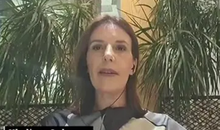

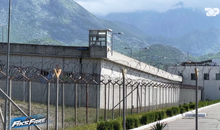

Greece imposes fee to visit Santorini, how many euros tourists must pay
2025-07-03 20:50:37
Don't make fun of the highlanders, Elisa!
2025-07-03 20:43:43
Gunfire in Durres, a 30-year-old man is injured
2025-07-03 20:30:52
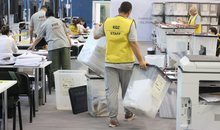
The recount in Fier cast doubt on the integrity of the vote
2025-07-03 20:09:03


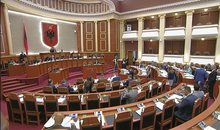

Heatwave has left at least 9 dead this week in Europe
2025-07-03 19:00:01
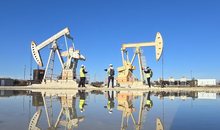
Oil exploitation, Bankers accused of 20-year fraud scheme
2025-07-03 18:33:52
Three drinks that make you sweat less in the summer
2025-07-03 18:19:35
What we know so far about the deaths of Diogo Jota and his brother André Silva
2025-07-03 18:01:56



Another heat wave is expected to grip Europe
2025-07-03 17:10:58

Accident on Arbri Street, car goes off the road, two injured
2025-07-03 16:45:27

Accused of two murders, England says "NO" to Ilirjan Zeqaj's extradition
2025-07-03 16:25:05


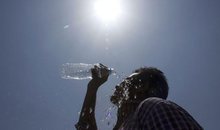
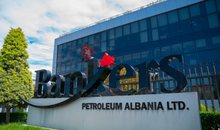
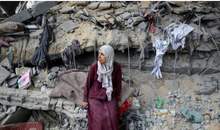
Gaza rescue teams: Israeli forces killed 25 people, 12 in shelters
2025-07-03 15:08:43
Diddy's trial ends, producer denied bail
2025-07-03 15:02:41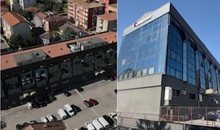

Agricultural production costs are rising rapidly, 4.8% in 2024
2025-07-03 14:55:13
Warning signs of poor blood circulation
2025-07-03 14:49:47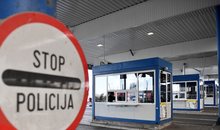
Croatia recommends its citizens not to travel to Serbia
2025-07-03 14:31:19
Berisha: Albania is the blackest stain in Europe for the export of emigrants
2025-07-03 14:20:19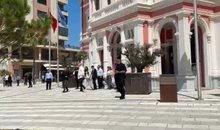

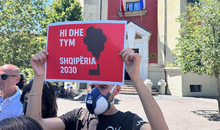
'Ministry of Smoke': Activists Blame Government for Wasteland Fires
2025-07-03 13:59:09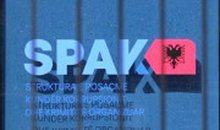

AFF message of condolences for the tragic loss of Diogo Jota and his brother
2025-07-03 13:41:36
Five healthy foods you should add to your diet
2025-07-03 13:30:19






A unique summer season, full of rhythm and rewards for Credins bank customers!
2025-07-03 12:12:20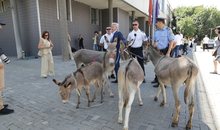

Fire situation in the country, 29 fires reported in 24 hours
2025-07-03 12:00:04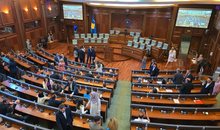
The constitution of the Kosovo Assembly fails for the 41st time
2025-07-03 11:59:57
The gendering of politics
2025-07-03 11:48:36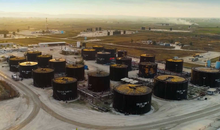
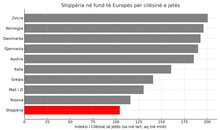
The price we pay after the "elections"
2025-07-03 11:25:39

Xhafa: The fire at the Elbasan landfill was deliberately lit to destroy evidence
2025-07-03 11:08:43

The 3 zodiac signs that will have financial growth during July
2025-07-03 10:48:01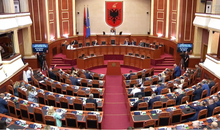
Democratic MP talks about the incinerator, Spiropali turns off her microphone
2025-07-03 10:39:24

Ndahet nga jeta tragjikisht në moshën 28-vjeçare ylli i Liverpool, Diogo Jota
2025-07-03 10:21:03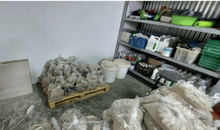
Cocaine trafficking network in Greece, including Albanians, uncovered
2025-07-03 10:10:12
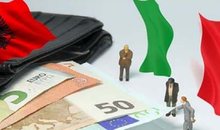
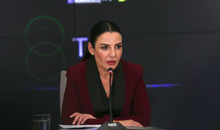

Korreshi: Election manipulation began long before the voting date
2025-07-03 09:39:13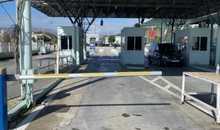
Arrest of Greek customs officer 'paralyzes' vehicle traffic at Qafë Botë
2025-07-03 09:28:41
After Tirana and Fier, the boxes are opened in Durrës today
2025-07-03 09:21:10
Enea Mihaj transfers to the USA, will play as an opponent of Messi and Uzun
2025-07-03 09:10:04

Foreign exchange, the rate at which foreign currencies are sold and bought
2025-07-03 08:53:50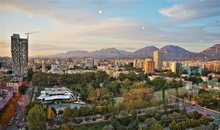
Index, Albania has the worst quality of life in Europe
2025-07-03 08:48:10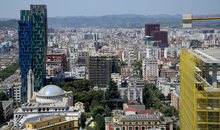
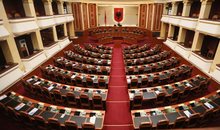
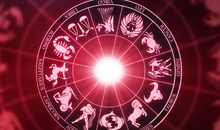
Horoscope, what do the stars have in store for you today?
2025-07-03 08:17:05
Clear weather and high temperatures, here's the forecast for this Thursday
2025-07-03 08:00:37
Posta e mëngjesit/ Me 2 rreshta: Çfarë pati rëndësi dje në Shqipëri
2025-07-03 07:46:48



Lufta në Gaza/ Pse Netanyahu do vetëm një armëpushim 60-ditor, jo të përhershëm?
2025-07-02 21:56:08
US suspends some military aid to Ukraine
2025-07-02 21:40:55



Methadone shortage, users return to heroin: We steal to buy it
2025-07-02 20:57:35
Government enters oil market, Rama: New price for consumers
2025-07-02 20:43:30
WHO calls for 50% price hike for tobacco, alcohol and sugary drinks
2025-07-02 20:41:53



